Churches 🢔 Religious architecture 🢔 Architectural wonders 🢔 Categories of wonders
Wonder
Yabroud Cathedral (Yabroud St. Constantine and Helen Cathedral)
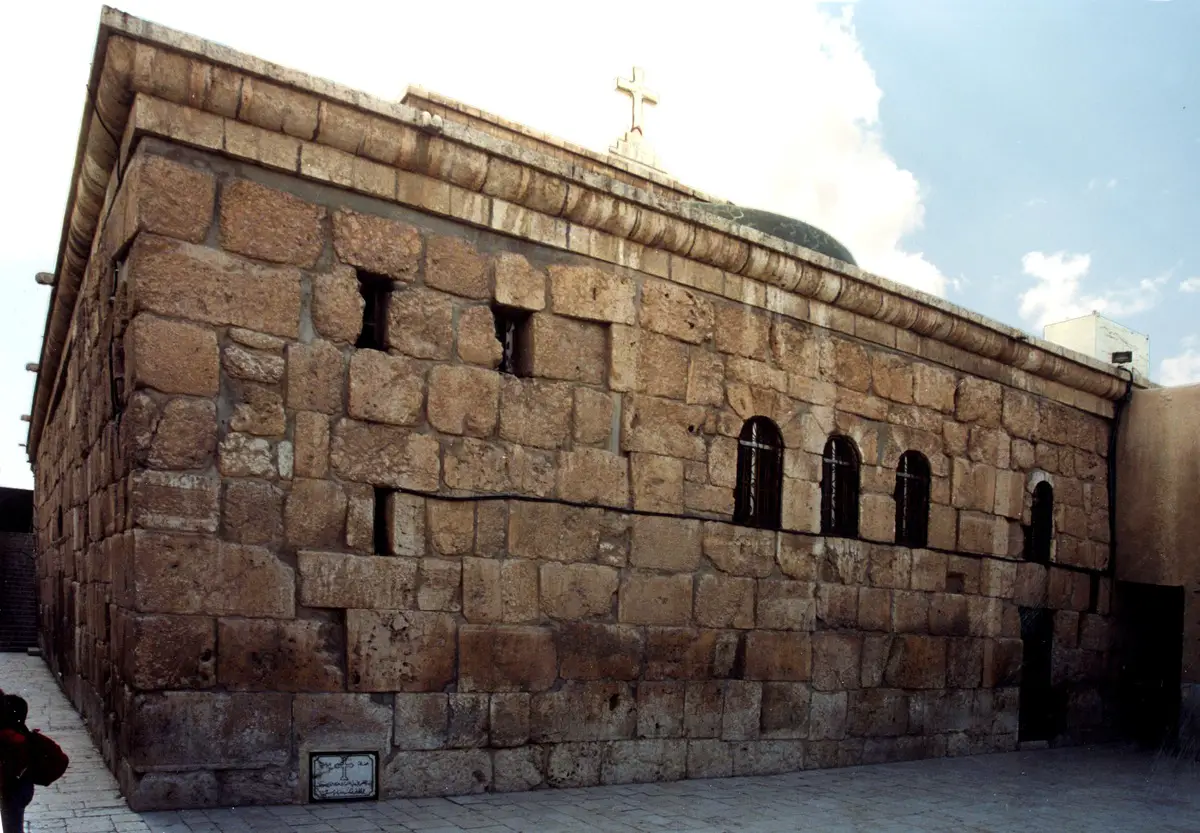
Gruppo Archeologico Romano, Wikimedia Commons / CC BY-SA 4.0
 In short
In short
The Yabroud Cathedral is considered to be the oldest extant church in Syria. According to tradition, this church was founded in a former paganic temple in 326 AD.
 35.8%
35.8%
GPS coordinates
Name in Arabic
Architectural style
Year of construction
Branch of Christianity
Map of the site
If you see this after your page is loaded completely, leafletJS files are missing.
 In detail
In detail
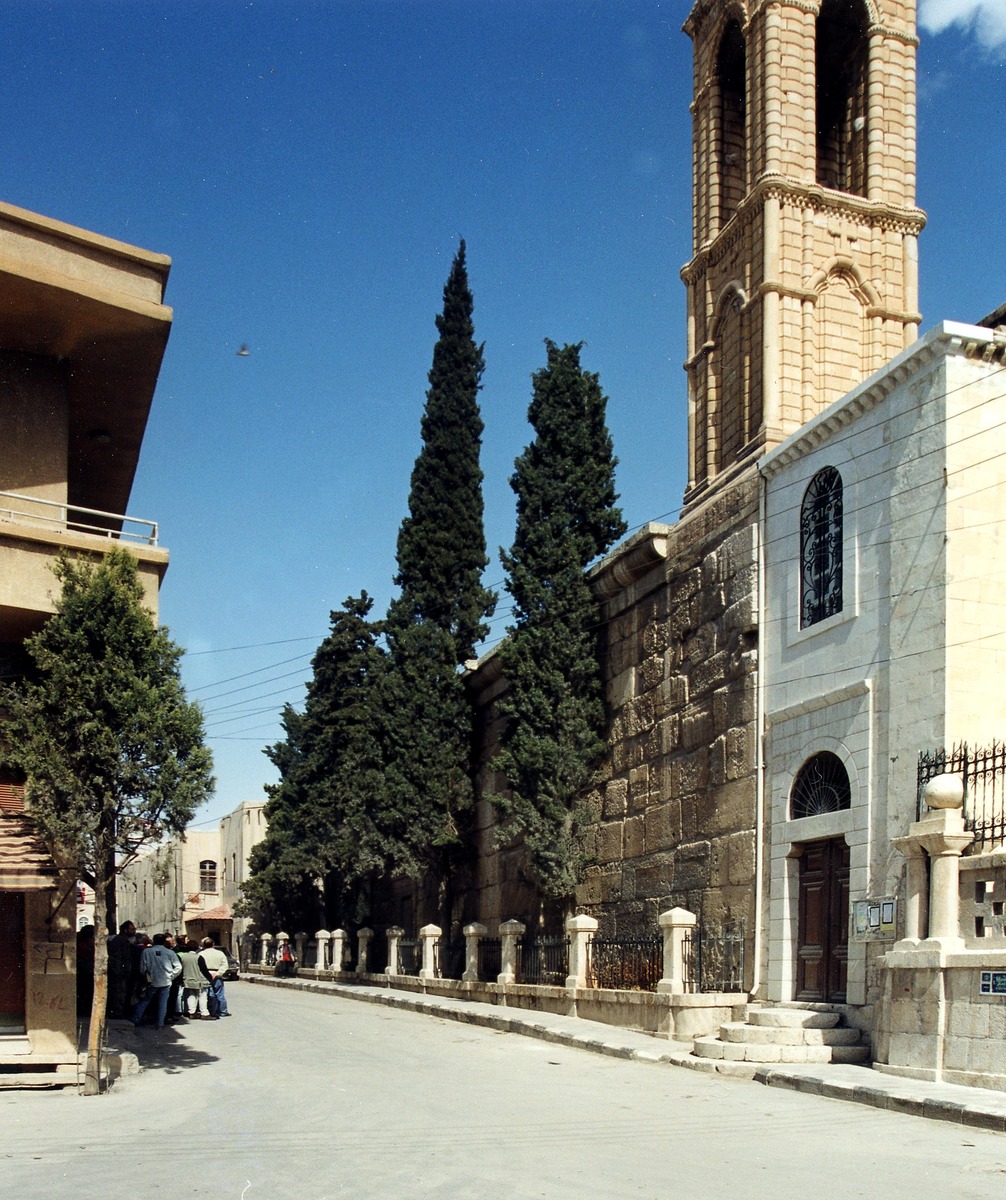
Gruppo Archeologico Romano, Wikimedia Commons / CC BY-SA 4.0
Yabroud is an ancient town with millennia-long history. In this picturesque town are located two churches with a long history – the Greek Melkite Catholic Virgin Mary Church and Yabroud St. Constantine and Helen Cathedral. Several more late antiquity churches existed in the town but have not been preserved to this day.
Paganic temple
It is not known when the first shrine was built at the site of the current Yabroud Cathedral, but already before 64 BC there was a Canaanite shrine to the Sun.
In 64 BC this shrine was transformed into a temple of Jupiter in Iabruda. This structure was further expanded and reinforced in 212-235 AD. The temple was constructed from the stone from neighboring Qalamoun mountains, in some places using material from older temples.
Early Christian cathedral?
Several of the world’s most ancient churches are attributed to the pilgrimage of Helena, mother of Roman emperor Constantine to Jerusalem. According to this tradition, Helena visited Yabroud on her return from Jerusalem to Rome and ordered the conversion of the temple into a Christian church.
Thus, many locals assume that this church was founded in 326 AD and, thus, is one of the oldest in the world.
It is hard to prove or disprove this, but the history of Yabroud Cathedral is ancient and the cathedral was the seat of the bishop already in late antiquity.
Latest history
Most of the present-day cathedral was built in later times, especially after 1840. Just a fundament and part of support columns remain from the Roman times.
Nevertheless, the overall planning of the cathedral has inherited some aspects of Early Byzantine architecture, such as the division into three naves, that are separated by supports and archways.
In the cathedral are many valuable icons from the 18th and 19th centuries.
The resistance to the Assad regime led to several fights in Yabroud and the cathedral was damaged in September 2013 and, possibly, in February 2014. Locals – both Christians and Muslims – renovated the valuable building as soon as possible.
References
- Hazem Sabbagh, Sts. Constantine and Helen Cathedral in Yabroud, a witness to thousands of years of civilization, SANA, 16 February 2015. Accessed on February 4, 2023.
 Linked articles
Linked articles
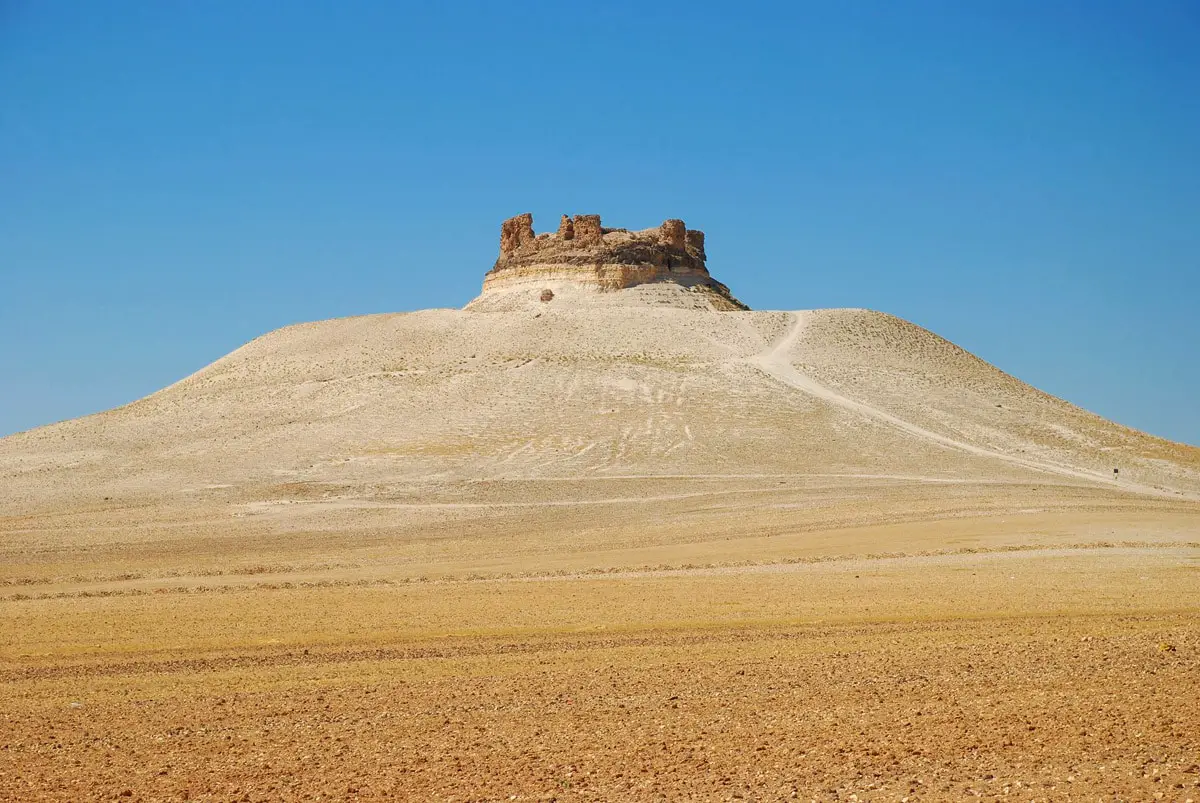
Wonders of Syria
The sands in Syria most likely hide many secrets that one day will tell how civilization started on Earth. Throughout millennia in this country appeared and disappeared many cities, some persist up to this day, some are in ruins but many are covered with sand. Here are found some of the oldest fortifications, palaces, castles, and some of the oldest Christian churches.
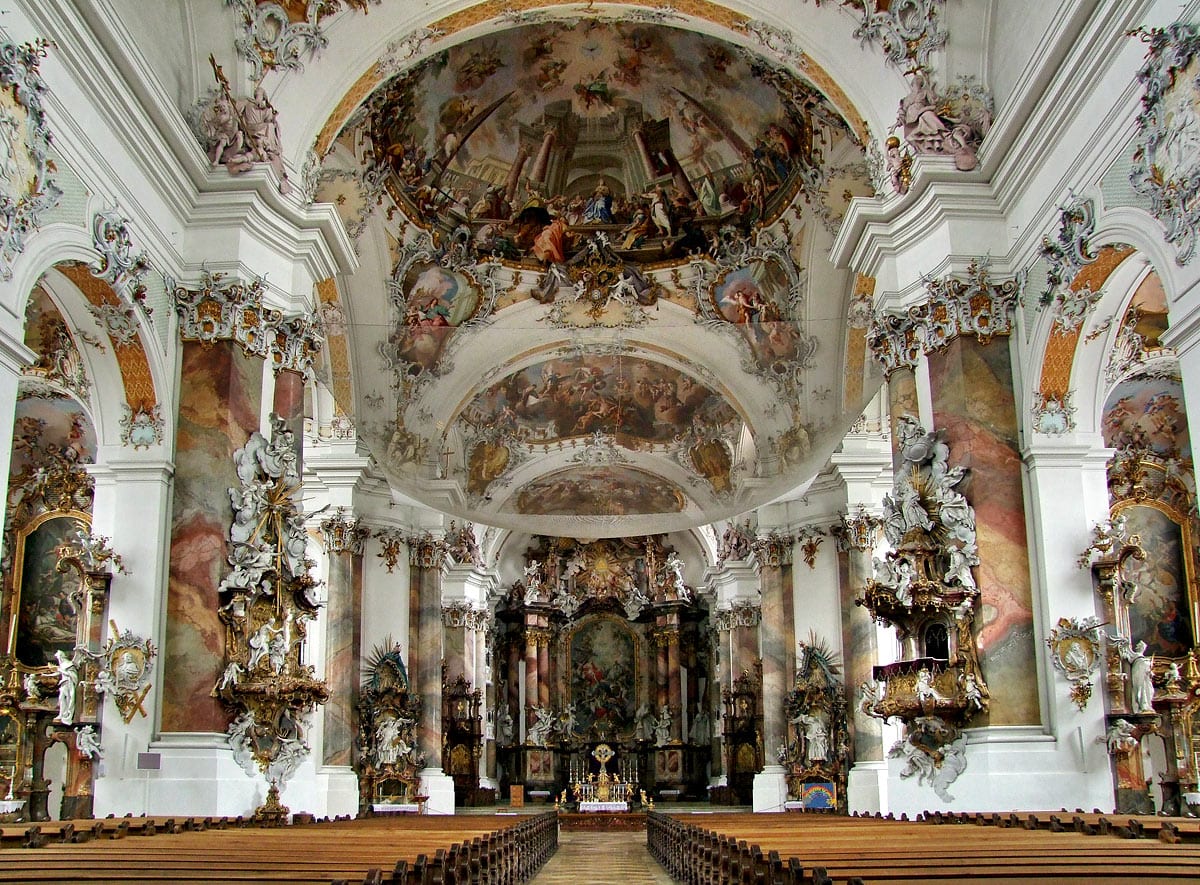
Churches
Throughout the millennia Christian churches have been the epitome of architecture and arts achievements in Western culture.
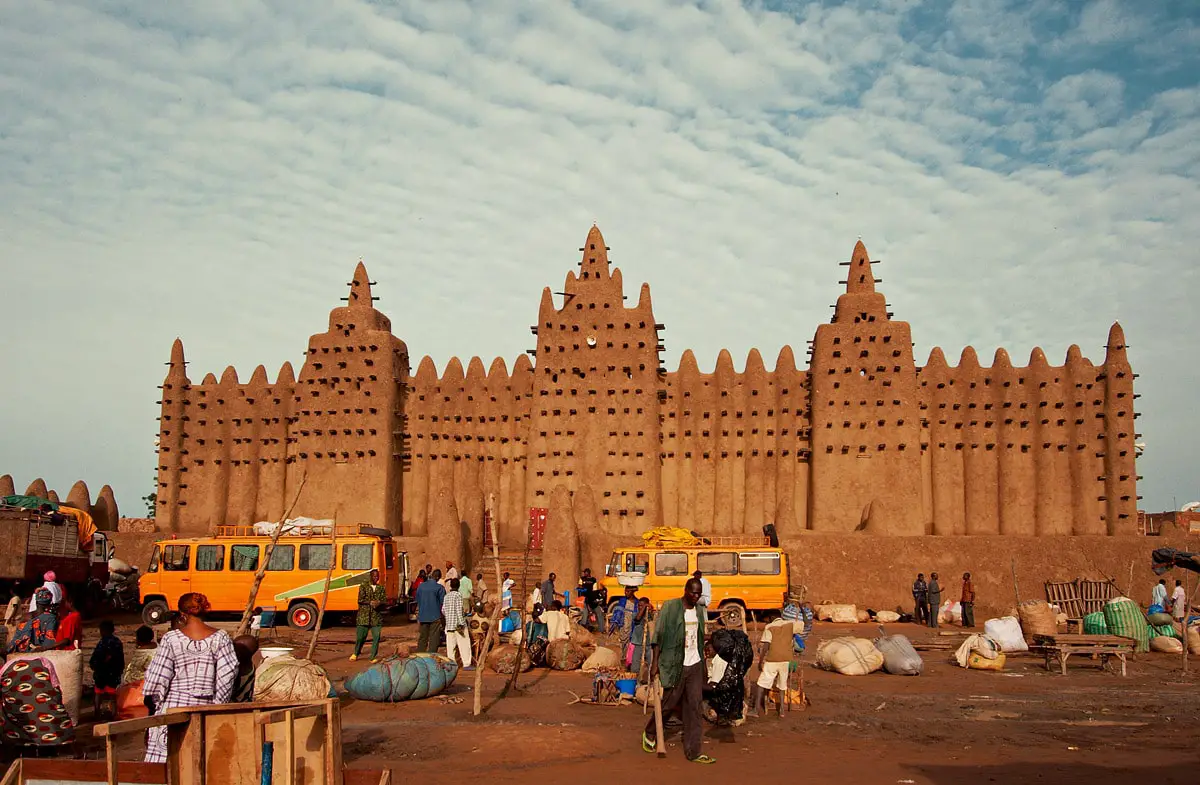
Religious architecture
Since ancient times human talents and skills have been expressed in religious architecture and arts, and traditions and rituals have evolved around pilgrimage sites. Religious buildings represent a major part of the highest achievements in architecture and crafts.
 Recommended books
Recommended books
Every Pilgrim’s Guide to the Journeys of the Apostles: Greece, Turkey, Italy, Lebanon, Malta, Syria and the Holy Land
This informative, pocket-sized guide is a travelling companion for the growing number of visitors to the sites of the Early Church. The guide includes practical information for tourists such as maps, a language guide and information on local services and facilities. It also features historical background, notes on Paul’s letters and devotional insights.
The Lost History of Christianity
The Lost History of Christianity by Philip Jenkins offers a revolutionary view of the history of the Christian church. Subtitled “The Thousand-Year Golden Age of the Church in the Middle East, Africa, and Asia—and How It Died,” it explores the extinction of the earliest, most influential Christian churches of China, India, and the Middle East, which held the closest historical links to Jesus and were the dominant expression of Christianity throughout its first millennium.


